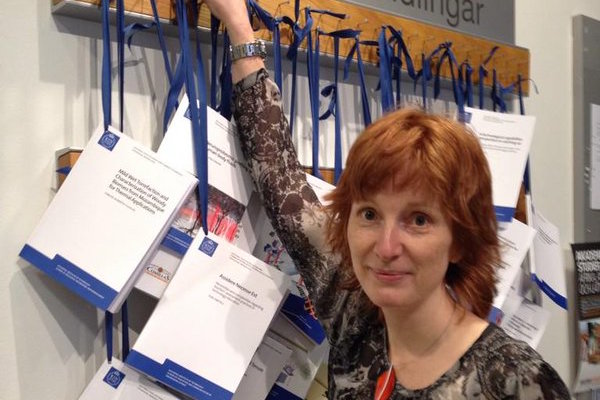Every child knows many things. When a child knows something, she has learned it somewhere, in school or elsewhere. However, when the child does not know, she has not learned it in school either. – Unknown
This article begins with a quote that highlights the importance of recognising that all children know many things, are able to do many things and are competent in different areas. The quote also puts forward that society is responsible for giving children opportunities for further development regardless of their starting point/background. Compulsory schooling and teachers are important here. When orchestrating learning opportunities, teachers must begin instruction from where students are and proceed by inviting students to participate as active, engaged and entangled agents. Therefore, some sort of follow-up and assurance is necessary. This process of follow-up is referred to as assessment.
Assessment is a necessity in the endeavour of bridging teaching and learning, thus affordance for teachers’ assessment practices must be provided in order to release the power of assessment. Within the educational context, assessments have, still have and most likely will continue to have many different meanings, aims and purposes. However, the aims and purposes of assessment may differ. If the purpose of the assessment does not include the pupil’s future progress, its usefulness must be questioned. Sometimes assessment is regarded as something only connected with grading and marking, but it is bigger than that. It is a fact that not all teachers award grades, but all teachers work with assessment in one way or another, consciously or not. A teacher who fails to assess what the students do cannot conclude if he is contributing to or impeding their process. Swedish professor Lars Lindström (2006) even argues that refusing to assess is a concession to those who argue that no learning takes place.
Even though there are many general aspects of assessment, there are even more context-dependent aspects than general and these are often forgotten: the context in which the learner is situated and the context of the particular school subjects. When it comes to Science, Technology, Engineering and Mathematics (STEM) subjects, the context of the subject involves different meanings in different parts of the world, especially the T and the E. It is particularly interesting to investigate assessment in different contexts and with different purposes in Sweden and other countries. Technology is often combined with science, engineering and mathematics in the growing STEM movement. What is subject-specific and what is general within the realm of STEM? What is specific and what can be synergetic to increase students’ capabilities and interest within these areas? And last but not least, how can subject-specific assessment literacy be built? This is an international need and therefore international collaboration is necessary.
On a general basis, Wiliam and Leahy (2015) provide excellent suggestions on how to embed formative assessment in practice through five key strategies:
- Clarifying, sharing and understanding learning intentions and success criteria
- Engineering effective discussions, tasks and activities that elicit evidence of learning
- Providing feedback that moves learning forward
- Activating students as learning resources for one another
- Activating students as owners of their own learning
In STEM, science and mathematics tend to overtake the discussion. There is a huge pile of books, research and experience to dig from on common misconceptions and even ready-made hinge point questions (Google them – there are many!). In contrast, knowledge about student common misconceptions in technology and engineering is close to nothing.
Mathematics and science are also much the same subjects all over the world, whereas the international understanding and interpretation/comprehensions of technology and engineering are not as unanimous. The Swedish technology/engineering subject (teknik) is a broad cross-curricular subject, which is mandatory for all Swedish students in comprehensive school year 1–9 (7–16 year olds). The overarching aim for the Swedish technology subject is “Teaching in technology should aim at helping the pupils to develop their technological expertise and technical awareness so that they can orient themselves and act in a technologically intensive world” (Skolverket, 2011). The Swedish curriculum is open for interpretation, even though it provides three strands of core content – Technological solutions; Working methods for developing technological solutions; and Technology, man, society and the environment. Within these strands, many different contents are described, including design process, history of technology, sustainability, technological systems, soldering, automatic control, materials, electronics and, most likely very soon, also programming.
In order to release the power of formative assessment, teachers need to be assessment literate. So, how can strong subject-specific assessment literacy among teachers in all four STEM subjects be developed?
In technology education, this is not evident and at the same time it is known that sharing learning intentions and success criteria is beneficial for learning. Therefore, the author and his colleague, professor Inga-Britt Skogh, set up an investigation on what teachers emphasise as success criteria in a design task for primary technology education. The research was undertaken during the assessment of multimodal student portfolios, examining five teachers’ decision-making during the assessment of 21 authentic multimodal portfolios collected from year five classes. They undertook what is called Adaptive Comparative Judgements (ACJs), where the judgers are presented with two portfolios and are to select one on the basis of best (Pollitt, 2011 and 2012).
Using digital portfolios eliciting evidence of learning that students themselves document in different ways cannot only ease teachers’ administrative burden (which seems to be a common discussion around the world), but also provides more valid evidence of learning. Open-ended tasks as well as closed subject content knowledge can be scripted using digital portfolios where students collect evidence of learning themselves. Portfolios have a tendency to get flooded with evidence of learning and not all is useful, therefore scripted portfolios can be preferred. Those who are interested can learn more about this from the work of Richard Kimbell and Kay Stables (@kaystables).
As an international team, this can be elaborated. Why not investigate designing open-ended and cross-curricular tasks, where each student makes one portfolio which is assessed from perspectives of different subjects? This would save time both for students and for teachers and possibly help students go further. Teachers of different subjects can then unite and use ACJ and train their assessment skills on a multitude of student work, including work of other than their own students, building their repertoire on what constitutes criteria for success in order to share this with their students.

Eva Hartell PhD
The title of the author’s doctoral thesis, ASSIDERE NECESSE EST, plays on her interpretation of the classic saying among sailors, navigare necesse est, which emphasises the quality of life that sailing provides. It is crucial that change starts from the current position and the navigator uses different sources to make inferences to actively navigate, make better founded decisions about the next step to avoid dangers and arrive safely at these goals. Even more so, this expression emphasises the challenge, joy and excitement of shared adventures. The same is needed to embed assessment into everyday practices. Within the educational context, assessment can be a powerful tool for navigating cognitive and social development. However, like any other navigational tool, assessment needs to be handled carefully to be useful in an educational environment as the crucial tool to bridge the gap between teaching and learning. So, teachers unite and help each other as pirates of education to make every child prosper in all four STEM subjects.


Latest posts by Eva Hartell (see all)
- STEM and Assessment: A Swedish Perspective - June 24, 2016
You must be logged in to post a comment.


There are no comments
Add yours